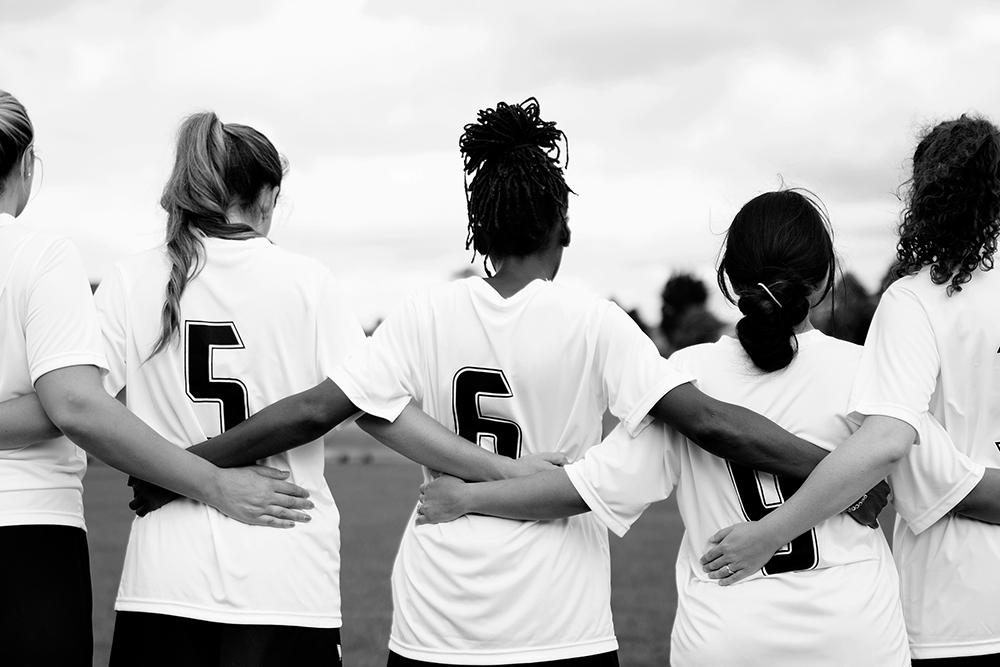 All teams face challenges and disappointments, and one of a coach’s most important roles is teaching young athletes how to deal with setbacks and come back stronger. According to Dr. Jim Afremow, PhD, sports psychologist and author of The Champion’s Comeback: How Great Athletes Recover, Reflect, and Reignite, successful comebacks begin with a team’s mindset.
All teams face challenges and disappointments, and one of a coach’s most important roles is teaching young athletes how to deal with setbacks and come back stronger. According to Dr. Jim Afremow, PhD, sports psychologist and author of The Champion’s Comeback: How Great Athletes Recover, Reflect, and Reignite, successful comebacks begin with a team’s mindset.
Afremow has identified what he calls the “Seven L’s” for creating a successful comeback:
- Let go
- Look for support
- Love the Game
- Learn, Labor
- Learn optimism
- Lean on your mental game
While you can learn more about all seven in his books, three of particular interest to coaches are: Let Go, Learn Optimism, and Lean on Mental Game.
Let Go
“Ruminating about our mistakes and failures is like holding on to a brick,” says Afremow. Some young athletes benefit from a more literal demonstration, so he recommends bringing an actual brick to practice, discussing the importance of “releasing the brick” and being freed from the weight of past mistakes. Some teams adopt “release the brick” as a mantra and even pantomime dropping a brick as a physical cue following an error.
Coaches have to set a consistent example to reinforce the “let go” attitude, which means not dwelling on setbacks. “Getting over a tough loss or a poor performance is about moving forward,” says Afremow.
Encourage athletes to shake off mistakes and focus on the next play. After a loss, acknowledge what went wrong, but emphasize what went well and what can be improved.
Learn Optimism
“Optimists see success as personal, permanent, and pervasive, whereas failure is situational, short-lived, and specific,” says Afremow. “Optimists are more likely to sustain success and bounce back when knocked down.”
Humans have a natural inclination to be critical and learning to be consistently optimistic can require a great deal of positive reinforcement. Dr. Afremow recommends adhering to a 5 to 1 praise-to-criticism ratio when providing feedback to individuals and whole teams.
Expressing five positives for each negative may not always come easily, but the impact on young minds is worth the effort. It is a good idea for a coach to occasionally track comments (or have an assistant coach do so) to see how well they are actually balancing positive and negative feedback.
Lean on Mental Game
Developing an effective mental toolbox during childhood can help prepare athletes for success throughout their academic, personal, and professional lives. Dr. Afremow reminds coaches of three techniques they can teach to help young athletes develop:
- Mindfulness: “Mindfulness is paying attention to what’s happening in the moment,” says Afremow. Find moments during stretching, breaks, or practices for athletes to be quiet and mindful in the moment. Focus on fully experiencing what’s happening now instead of what just happened or is about to happen.
- Visualization: Visualization is doing mentally what you do physically. Effective visualization requires training and practice. Facilitate brief exercises with individual athletes and the team. Guide them through the process of “seeing” and “feeling” themselves executing particular skills and achieving success.
- Body Language: “Body language is nonverbal communication through postures, gestures, facial expressions, and eye movements,” says Afremow. When athletes exhibit positivity they invite positivity, even following mistakes.
In all areas of life there will be wins and losses, triumphs and setbacks. Teaching young athletes to lose and come back stronger is as valuable as teaching them to win.
To read more about Dr. Afremow’s Seven L’s and his newest book, The Young Champion’s Mind, visit Gold Medal Mind.



